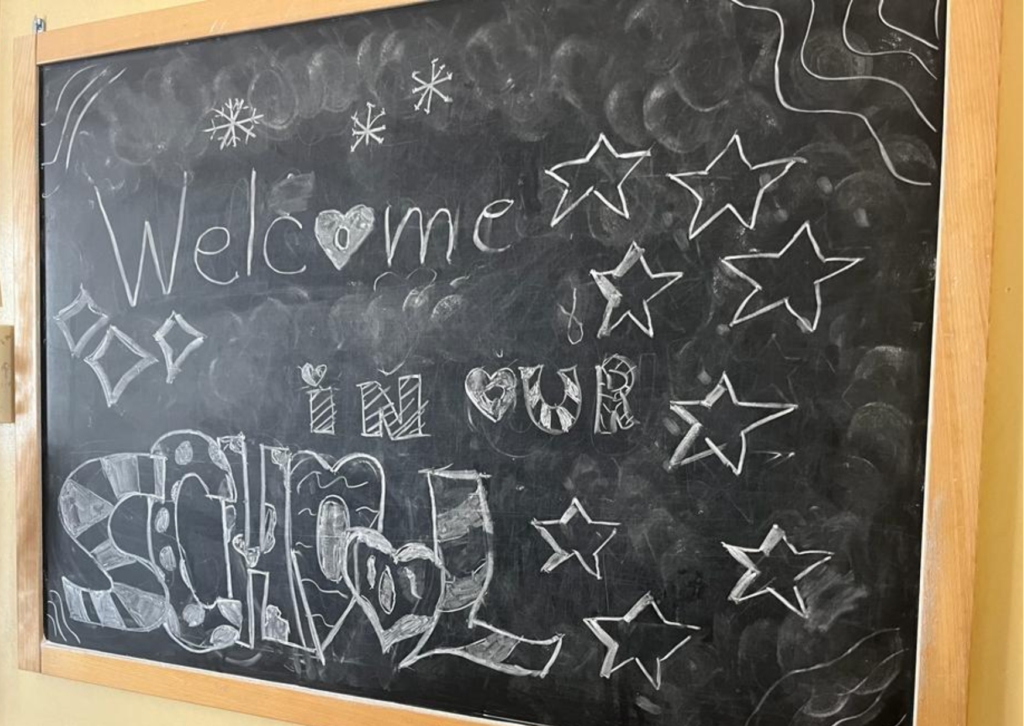Teaching Language & Learning Culture in Roman Classrooms

In all Italian state schools, students start learning English in the first grade, in acknowledgment of its importance as a global language. In most cases, however, budget constraints prevent schools from organizing workshops and other activities with native instructors, and exposure to spoken English varies for each individual student.
In order to support local learners this spring semester, University of California Education Abroad Program and University of Southern California students started volunteering at a local school in Rome. Twice a week, students went to the Piazza Winckelmann Middle School in the Trieste neighborhood of Rome and worked side-by-side with local English teachers in sixth to eighth grade classrooms. During their time in the classroom, they helped organize learning activities, gave simple presentations to the class, and held conversation sessions for middle schoolers, giving them the chance to practice their language skills in small groups and with native speakers.
Both American and Italian students also organized special one-time activities. On the first day of this project, Ms. Luisa Esposito, English teacher and lead for the project, had her students show their international guests around the school. Each student was responsible for introducing a different area—the gym, library, computer lab, and so on—with a short description, creating a full guided tour of the school. On another day, the volunteers prepared a simple presentation about life in California, from pop culture and high school to national parks. Other activities included a karaoke session to learn vocabulary and pronunciation through songs, and a presentation about American junk food (with some tasty samples!).
Other students volunteered at the nearby preschool La Casetta sull’Albero. Exclusively engaging teachers whose mother tongue is English, the school offers an international curriculum that provides Italian children with a full foreign language experience from their early years. Student volunteers are paired with teachers, working with four- and five-year old children by playing educational games, reading books, and working on basic writing skills.

Through their volunteer work, these semester students had a chance to help the local community by supporting young learners on their path toward becoming global citizens. By spending time in the classroom, volunteers experienced first-hand the strengths and shortcomings of the Italian educational system, and their interactions with Italy’s youngest generations gave them a truly unique insight into the culture of their host country.
To provide a fully rounded educational experience, Accent relies on its deep local network to provide students in signature semester programs with volunteer and service-learning opportunities. Please reach out to Accent’s Program Development team at development@accentglobal.com if you are interested in discussing these ideas for your customized study abroad programs.